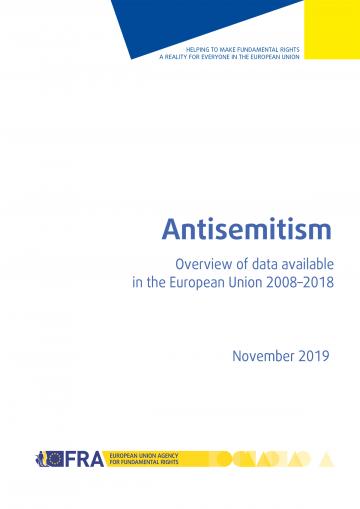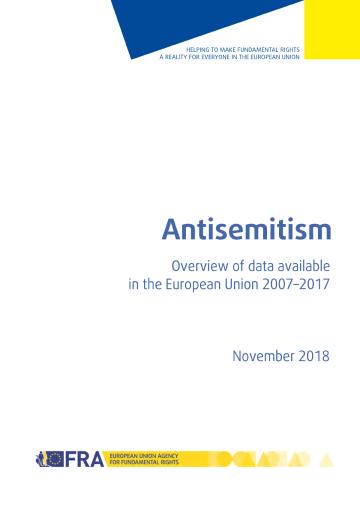
Antisemitism - Overview of data available in the European Union 2008–2018
Antisemitism can be expressed in the form of verbal and physical attacks, threats, harassment, discrimination and unequal treatment, property damage and graffiti or other forms of speech or text, including on the internet. Antisemitic incidents and hate crime violate fundamental rights, especially the right to human dignity, the right to equality of treatment and the freedom of thought, conscience and religion.
The present report provides an overview of data on antisemitism as recorded by international organisations and by official and unofficial sources in the 28 European Union (EU) Member States, based on their own definitions and categorisations. ‘Official data’ are understood here as those collected by law enforcement agencies, other authorities that are part of criminal justice systems and relevant state ministries at the national level. ‘Unofficial data’ refers to data collected by civil society organisations.
This is the 15th edition of FRA’s report on the situation of data collection on antisemitism in the EU (including reports published by FRA’s predecessor, the European Monitoring Centre on Racism and Xenophobia).





